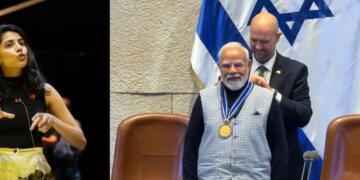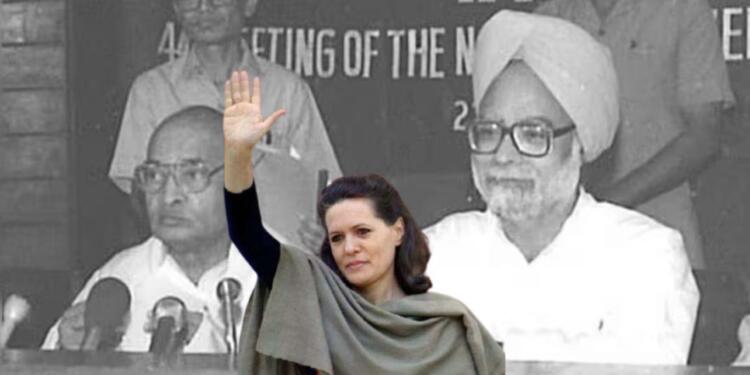Former Prime Minister Manmohan Singh breathed his last on the night of Thursday in AIIMS Delhi.
As the nation mourns his loss, his contributions to the nation’s path of becoming an economic powerhouse are being remembered and cherished. Undoubtedly Singh was a capable economist. The real question is how well he applied it in national interest with the ‘undemocratic’ political maneuvering around him. In his career, he decided to continue his work by dodging the politics, which is no resort for a politician, especially when he was serving high political offices including Finance Minister and the Prime Minister.
A quick analysis of India’s independent history tells us that whatever big steps were taken by any government, the prime minister is at the helm of it. He is praised for good, criticised for bad. He is first in the line to take anything that comes towards the government. But in the case of 1991’s budget and Liberalisation, Privatisation and Globalisation (LPG) reforms, PV Narasimha Rao is kept at the margins.
Over 30 years down the line, the Darbari ecosystem left no stone unturned in giving an impression that it was merely an act of approval for PM Rao and the success of 1991 economic was of Dr. Singh. However, back then the nation was standing at a point where an immediate decision was needed but more needed was for the PM to muster courage to take such a bold decision because liberalisation and privatisation till then was seen as an imperialistic trap that would endanger India’s Independence by providing free pass to foreign companies.
In fact Singh once said that Rao was a “great son of the soil” and he can truly be called the father of economic reforms in India as he had both the vision and the courage to push them forward.
But Congress deliberately didn’t highlight Rao’s contribution because of petty considerations and doing so would have cast a shadow over the political future of the family. On the contrary, for Congress, lauding Singh suited their narrative as they had already charted the path of demeaning Rao.
Make no mistake, Singh’s contribution can’t be denied but his negligence for his own exploitation against Rao is disappointing.
To put it in perspective, Congress has been socialist in its approach towards nation’s development while it always knew that liberalisation is the only key to address the larger issues of the country. The reason for this ignorance was the image of the party. Its ideology has shaped up from the time of pre-Independence. People saw it as the caretaker of common people’s interests. oi be in govt, socialist approach was a tool and that is why it took more than 40 years to liberalise the economy.
1991 was a necessity not a voluntary decision. But since it turned successful and the Gandhi family had already done travesty with their party leader, Singh was the missing puzzle to still appropriate the credit for the 1991 LPG reforms. Consequently, when the time came for Sonia Gandhi to find a second fiddle, Singh was selected as the best fit and thus he became the Accidental Prime Minister, as we know today.
Congress took a one step-three target approach to take credit for reforms, downplaying Rao’s legacy and lauding Manmohan, the entrusted one.
This is evident by the change in the approach of Congress towards the economy in the past three decades.
While, it lauds Manmohan Singh for these reforms, it criticises all aspects of it today. Be it the privatisation or the liberalisation, Congress under the helm of Rahul Gandhi is reaching out to the voters by vilifying industrialists, spreading negative press over the FDIs and spreading rumours regarding privatisation.
Their poll rallies are filled with voices of promises that contradict the spirit of the biggest economic reforms.
Critically, when a party that has brought the country’s biggest economic reform is repudiating it, what does that tell us? When the main opposition party during 1991 is on the path of following, implementing and furthering it effectively, why is the original proponent falling back?
Or to put it in another way, how can Congress stand against the essence of these reforms when it was lauded as a brainchild of someone whom Congress made the prime minister?
These questions create a puzzle of deceit, with only one piece needed to solve it: Congress’ political interest, at the altar of national interest.
If Congress would have been seriously proud over the 1991 reforms and would have seen Dr Manmohan Singh as a stalwart in the party for the same, the Congress wouldn’t have defied what it calls the legacy of Dr Manmohan Singh.
As Singh passed away, the nation should remember his contribution for the biggest economic reform but he should also be remembered as someone who kneeled down in front of the Gandhi family, got himself reduced to political tool at the hands of family and turned his eyes when the Congress was weighing in for personal political interest rather than the national interest.

























